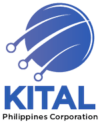In the current digital economy, telecommunications can no longer remain behind the scenes. Communication systems are essential, especially in businesses with call centers, which provide touch-points for clients and customers.
Since improving customer experience is a key concern for such operations, streamlining communication is one way to keep up with new technology trends and maintain business growth. Continuing to use legacy communication systems, on the other hand, can hamper growth and transformation. These old systems are often hard-wired, monolithic, and difficult to change.
Kital addresses the challenges that businesses face in legacy system upgrades. We are a PBX provider that provides cost-effective transitions so you can make the most of your telecommunications system.
Legacy Systems Hamper Innovation
In computing terms, the word “legacy” describes outdated or obsolete technology that is still being used by an organization. The term implies that the system or equipment is in need of replacement, but the business owner does not want to perform an upgrade. These could include antiquated pieces of computer hardware, application programs, or phone systems.
Take note, however, that antiquity does not necessarily refer to a system’s age. Rather, it relates to the discrepancy between what is current and what your existing communication system is offering.
Since information technology has a tendency to age quickly due to changes in operating systems, software designs, and hardware progress, sticking to legacy systems is a risky business strategy. Using out-of-date systems could pose disadvantages to your business. These include:
- Compatibility failures with new operating systems or browsers;
- Slower performance, putting your systems at a greater risk of failure;
- Susceptibility to security breaches, and
- The lack of updated documentation and programming languages.
Even with intervention from other departments and users, some organizations still end up spending a huge part of their budget on maintaining legacy systems. In turn, this limits the IT department’s ability to pursue digital transformation more effectively, making your business miss out on lucrative opportunities.
Building a Stable ICT Infrastructure
At the dawn of the 2000s, the information technology-business process outsourcing industry (IT-BPO) took the Philippines by storm. Every year, call centers raked in tens of thousands of dollars in revenue. As BPO offices and call centers improved their infrastructure and expanded their reach, they were able to support the economy by helping Filipinos find stable jobs and achieve professional growth.
Today, the country is one of the leading call center industries in the world, beating India, one of its closest competitors. The growth of the call center industry is so immense that analysts expect that it will make $48 billion by 2020.
The consistent growth of the IT-BPO industry depends on having a robust information and communication technologies (ICT) infrastructure in place. ICT stresses the role of unified communications and integrated telecommunications, including a wireless network, cell phones, the Internet, and other mediums.
When it comes to making technology updates and telecommunication system upgrades, however, a majority of organizations stick to the “If it isn’t broken, don’t fix it,” state of mind. This principle has led organizations to rely on legacy software and tools, resulting in the costly management of IT systems as well as lower productivity and security.
Call center offices that hold back on modernization fail to engage customers in the digital age and empower employees.
Greater Collaboration, Control, and Flexibility
A strong and reliable ICT infrastructure depends on having a modern and adaptable phone system in place that allows for secure and streamlined communication in your office. As one of the leading PBX/PABX systems suppliers in the Philippines, we can help you reap practical benefits, such as better speed and security, reduced operational costs, and lesser downtime.
A cost-effective communications system fueled by technology is what makes outsourcing tasks possible. After all, it can be difficult to address customer calls and queries for companies based in countries, like the US and UK, if your systems are slow or prone to glitches.
When is it Time to Upgrade from Legacy Systems?
If you’re wondering when it’s time to hang up on your old business phone systems, here are a few signs that you’re ready to upgrade.
Your technology is outdated
Legacy phone systems consist of outdated technology that’s costly to maintain and does not offer modern features such as mobility. Usually, these phone systems are not IP-based and they use traditional phone lines. Experts also point out that legacy systems are unsustainable as the networking technology itself is becoming obsolete.
Once legacy systems become too old and outdated, vendors will stop marketing, selling and reworking the systems to sustain them. They’ll also end support for the product as more companies switch to VoIP phone systems. Repairs will become expensive and you’ll have a hard time finding spare parts due to the lower demand. The manufacturer may even stop manufacturing the parts, forcing you to purchase used replacement parts that are of questionable reliability and come at a high price.
You have new or additional office locations
If you decide to take your current networking and PBX phone systems to your new location, you’ll find out that the expenses of uninstalling, transporting and reinstalling them cost around 20-40 percent of an entirely new system. Additionally, when you’re transferring old equipment, you won’t be able to use them while they’re being serviced. You’ll most likely need to transfer them over a weekend or holiday, doubling the price of service fees. Add in the potential loss incurred by a rushed reinstallation job and it quickly reveals itself to be a risky proposition.
Upgrading the company’s phone systems to Kital’s custom IP PBX solutions is not only easier to manage but it will save your business valuable time. It also gives you the opportunity to add useful and advanced features you never had with your old system.
You’ve capped your capacity
It’s wonderful when your business grows – until you realize you don’t have the appropriate technologies to support its growth. Standard legacy phone systems have a limit to the number of phones they can support before you have to install additional ports and buy more of the same equipment. Once you need more call capacity, you’re back to the problem of needing to purchase supplementary expensive and outdated equipment.
With VoIP phone systems, you don’t have to purchase additional equipment when you hire more employees. You just connect them to your IP network and business continues as usual. The only thing you need to increase is your bandwidth, which is a more cost-efficient option than adding ports.
Your systems don’t have the features you need
If your current office phone systems don’t have the features you need to keep up with your business needs and stay ahead of the competition, an upgrade is necessary. Many VoIP systems offer impressive stats and call reports as well as the ability to track and monitor individual phone calls. Other features include mobility, call queues, conferencing, CRM integration and softphone applications. These are all extremely valuable to internal sales teams and business call centers.
Transforming Legacy Systems for the Digital Era
When considering how to modernize your legacy systems, your initial assumption may be a “rip and replace” method. While this might make sense in some cases, upgrading your communication systems is an iterative process that doesn’t necessarily require you to start from scratch.
While there is no one-size-fits-all solution, the key is to create flexibility by embracing innovative systems that support growth and supplement your business functions.
Before the transition, it is critical that you evaluate which applications support your growth and strategy. Start with these steps to find out which modernization approach would work best for you:
- Understand your business requirements
- Consult with a systems integrator or architecture staff to determine how to upgrade your infrastructure without disrupting the user experience
- Develop a modernization plan that incorporates your business objectives
Use our innovative IP-PBX solutions for your corporate communication lines for high-quality calls and advanced features your legacy phone system lacks. Upgrade your office phone systems to optimize your business process and enjoy the following benefits:
- Better flexibility and control. Workplace conditions are more dynamic than they used to be, encouraging customers to adapt to the changing landscape. Since legacy phone systems are costly to upgrade and maintain, updating them will offer greater flexibility and support telecommuting as well as remote work.
- Lower costs. Legacy phone system installation, along with the cost of usage, can be expensive. Upgrading to a VoIP system, on the other hand, offers budget-friendly solutions because the technology is easier to deliver than outdated systems.
- Increased collaboration. What separates VoIP from legacy phone systems is that they can be integrated into various applications. You can add different features that facilitate easier communication and teleconferencing. Some of the interfaces are so flexible that they support integration with the current systems you already use.
- Business continuity. Some VoIP systems come with cloud-based features. This means that your phone and messaging systems run on your provider’s web servers. In case of a disaster or emergency, the system allows you to continue operations. Without spending time and money on disaster recovery, your employees can still access core communication systems, such as phones, instant messaging, screen sharing, and video chat functions.
- A professional image. All companies have a dedicated phone number. Those that maintain traditional landlines, however, may come across as old-fashioned compared to offices that use upgraded communication systems with add-on features without excess charges or additional hardware.
Integrated older software with new systems while still meeting customer demands will be successful if you understand the benefits of revamping your communications system. And instead of a complete overhaul, it helps to use a combination of new programs and old applications, so long as they still align with your business goals.
Fortifying your dominance in the outsourcing field entails understanding modernization and balancing the changes that would apply.
Partner with Kital for state-of-the-art technologies and reliable communication channels. From assessment to modernization, we will provide a telecom solution that will help you adapt easily to a continually changing environment.
Contact us today, and we’ll customize a telecommunications solution for you.




